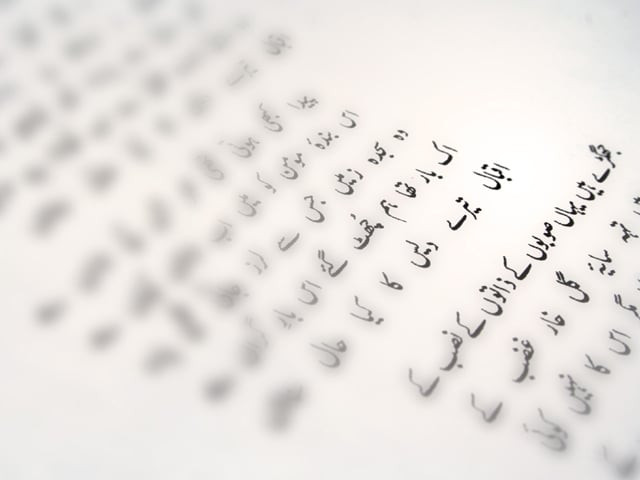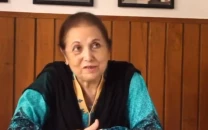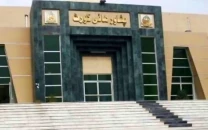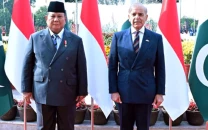‘All languages evolve - Urdu must too’
Addition of foreign words allowed Urdu allowed to flourish and evolve.

Addition of foreign words allowed Urdu allowed to flourish and evolve. PHOTO: FILE
The theme for the third session of the Second International Urdu Conference held on Friday was ‘Urdu- a widely understood language and the Media’.
Poet Shameem Hanafi presided over the session and Professor Sehar Ansari, Dr Shah Muhammad Murree, Dr Thang Mung Shung and Ashfaq Hussain sat on the panel. The session was moderated by Dr Muhammad Kamran.
Nearly 200 people attended the third session.
Dr Kamran opened the talk with the observation that many Urdu words were now considered archaic, the media had stopped using those words and they had slowly dropped out of common usage. “This is not a good sign,” he said.
Hussain, a programme producer at the Asian Television Network in Canada, discussed the addition of English words to Urdu vernacular. “The media has been replacing Urdu words with English ones and the practice seems impossible to stop,” he said. However, languages always borrowed terms and phrases from others, “That is how they evolve and flourish,” he said.
Even poets like Raees Amrohvi had used English words ‘TV’ and ‘Pen’ in his poetry, he said. “But excessive use of English words cannot be allowed. The media must search for Urdu words before settling for words from other languages,” said Hussain.
Shung, director at the Centre for Pakistan studies in Peking University, said many English words had been added to Mandarin because of globalisation, the trend seemed irreversible. He said, “Unlike Pakistanis, Chinese people do not feel ashamed to speak their national language. That is what keeps the language alive and flourishing.”
Shung said, “It is regrettable that many Pakistani writers and critics, who are supposed to be the guardians of Urdu, tell me that my spoken Urdu is too bookish and not understood by the common people.” Shung, who has been awarded a Sitara-i-Khidmat and Sitara-i-Pakistan, also praised Pak-China friendship.
Murree opened his speech by saying, “I pity the people who look towards other languages, to be better understood.” He said the fact that Urdu had been identified with religion, the independence movement and political ideology did not allow Urdu to become the common man’s language. “Languages spoken by the aristocracy do not trickle down to the masses,” he said, “The media has no option other than that to adopt words from English because multinationals hold sway over the government and the media.”
Murree lamented that Balochi, Pashto or Sindhi words were not allowed to enter Urdu. “The only way Urdu can become a national language is if we allow local vocabulary to enter it,” he said. Muree has translated several English, Russian and German books in Urdu.
Professor Ansari said, “Urdu cannot flourish unless its speakers stop criticising people whose mother language is not Urdu.”
The media can play an important role in developing Urdu as a national language, he said. Dictionaries are important and rules of grammar should be followed but languages prosper when they are spoken by the masses. He criticised the phrase ‘people of the language’ saying, “Languages belong to the people and those who work for them.”
Quoting from an essay by Ibn-i-Insha, he said, whatever enters Urdu is part of Urdu and should not be considered alien to it.
Hanafi said that consumerism and politics had affected Urdu and its cultural aspects. He said that native languages should be allowed to mingle with Urdu for the good of both. “People forget that the word kamra (room) has been borrowed from Italian and maiz (table) is from Portuguese. But if someone uses a Punjabi word while speaking Urdu, they have hell to pay for,” he said.
He said that languages evolved and one of the ways of doing so was to adopt words from other languages, Urdu should too. “The media will continue to introduce changes to Urdu and we will have to accept this as normal,” said Hanafi. The session ended with a sitaar performance by Ustaad Raees Khan.
Published in The Express Tribune, October 13th, 2013.



















COMMENTS
Comments are moderated and generally will be posted if they are on-topic and not abusive.
For more information, please see our Comments FAQ